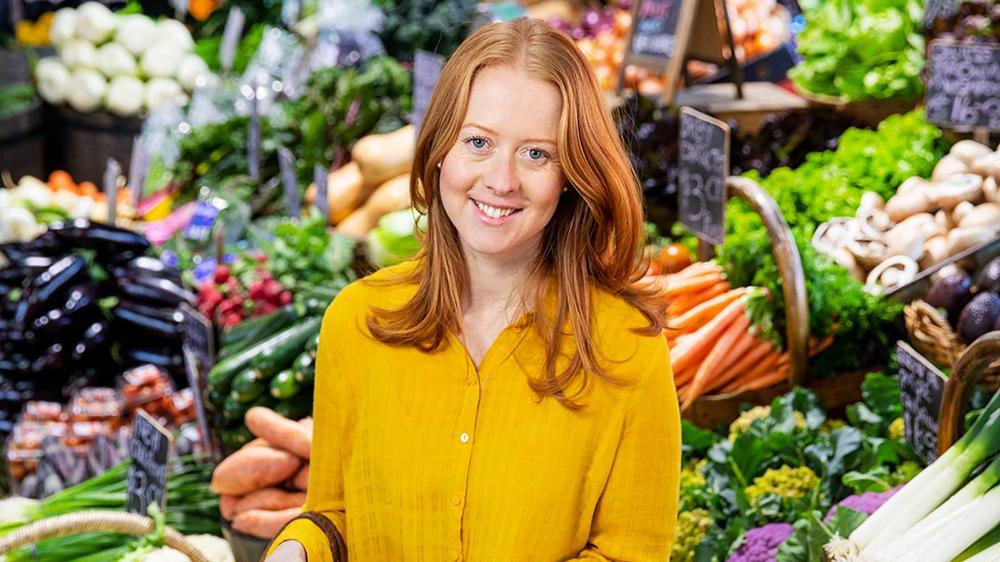UOW exists thanks to the generosity of donors
You can change lives by empowering our brightest minds and future leaders
UOW graduate Erin Rhoads shares her top 10 tips
January 30, 2023
Every item we buy and throw away has an environmental footprint and Australians toss out a lot.
74 million tonnes are thrown out yearly according to the 2020 National Waste Report. For each bag of waste that we throw out at home, another 70 bags of waste were created in the extraction and production processes.
In 2013 I learned about the impact our everyday choices can have on the planet and people, from how we shop to what goes in our bins, and how focusing on reduce and reuse was better than recycling. Since then, I have been trying to lower my waste and plastic while documenting the journey on my blog, running over 400 workshops, and sharing it all in my book Waste Not to help others wanting to do the same.

Doing our best to reduce waste and plastic, changing our habits and shifting ideas when it comes to stuff is one of many tangible solutions for climate change. Here are 10 ways to get you started to fight the war on waste:
The most effective way to reduce waste is to not create it in the first place. The less brand new items we buy will ultimately reduce the waste created upstream during the manufactures as well as downstream when the item is disposed of. There are many avenues to shop secondhand whether its online, at Op Shops, or buy nothing new groups. You'll also save money too!
I'm a big repairing advocate for many reasons beyond reducing waste to landfill. Repairing means investing in important skills, telling companies I want items that can be repaired, valuing resources and the people who made my stuff. It's an act of environmental and social justice.
Composting food scraps and yard waste can significantly reduce the amount of waste that goes to landfills. With over 40 per cent of our landfill bins made up of food waste, making the switch to composting or worm farm will cut your landfill almost in half.
Visit BYOContainers.org to find stores championing reusables like bulk food stores, delis, butchers, and even beauty brands. Shoppers can bring along cloth bags and containers to buy their food in, helping reduce single serve packaging that is rarely recycled. Our recycling system is still new and with a few flaws, reusing is the most sustainable action and is one that was normal before plastic was invented.
By bringing your own containers and utensils, you can reduce the use of disposable items. Many cafes will accept reusables and you can locate them on the Responsible Cafes website.
Supporting businesses using low waste practices can help drive the market towards more environmentally friendly options. The more we support them, the higher chance other companies will make changes too.
Often we buy items we only need to use for a short amount of time. Instead, try borrowing rather than buying. Try your local toy library, tool library, libraries of things, or ask a community Facebook group for what you need. Borrowing is not only great for the environment, it also fosters community connection, we can learn and build skills, and saves on clutter in our homes. Plus, we are more likely to look after a product we borrow rather than buy.
Reach out to businesses with your feedback on how they could improve their process to reduce waste and be eco-friendly. Writing an email, making a phone call or commenting on their social media are all accessible ways to let the people making our products rethink how they create their products. An item’s waste footprint begins during the design process.
Cutting back the number of cars on the road, will help reduce pollution and waste.
Growing simple herbs and vegetables like lettuce is a great way to avoid the plastics they can come packaged in. You'll also reduce the carbon footprint that comes from the transportation of food.
About Erin
Erin Rhoads has a Bachelor of Creative Arts from the University of Wollongong and is the person behind The Rogue Ginger, one of Australia's most popular zero-waste blogs. Erin is a leading voice on zero-waste in Australia and has authored two best-selling books Waste Not: Make a big difference by throwing away less (2018) and Waste Not Everyday (2019).
You can change lives by empowering our brightest minds and future leaders